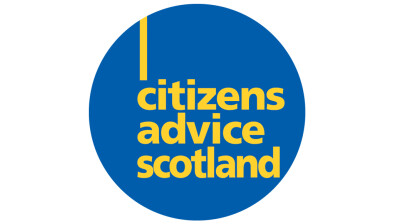Citizens Advice Scotland outlines emergency measures to Chancellor to protect household incomes
Citizens Advice Scotland (CAS) has written to the Chancellor of the Exchequer, Rishi Sunak, outlining a series of emergency measures the Treasury could take to protect household incomes during the coronavirus crisis.

Rory Mair CBE
The charity is backing a temporary suspension of utility bills, like energy costs and a boost to social security payments like Universal Credit and Statutory Sick Pay.
CAS wants to see the principle of a three month mortgage holiday extended to other forms of debt, like credit cards and a freeze on interest rates to be charged onto overdrafts.
The charity is also backing proposals from its sister organisation in England and Wales for a ‘Crisis Minimum Income’ of £180 per week.
In his letter to the Chancellor, Citizens Advice Scotland chair, Rory Mair CBE, said:
I am writing to extend a warm welcome to you into the position Chancellor of the Exchequer and to express concerns on behalf of the Scottish Citizens Advice Network about the likely impact on the financial health of people who use our services from the current COVID 19 outbreak.
Scotland’s Citizens Advice Network empowers people in every corner of Scotland through our local bureaux and national services by providing free, confidential, and independent advice.
In 2018-19, the Citizens Advice Service network helped over 270,000 clients in Scotland and dealt with almost 750,000 advice issues. With support from the network, clients had financial gains of over £131 million and our self-help website Advice in Scotland received approximately 3.7 million page views.
The work of Citizens Advice Bureaux is often helping people maximise their incomes and reduce their cost of living.
In fact since 2009, amid the fall out of the 2008 financial crisis, our network has unlocked £1.3 billion in gains for people in Scotland.
Many of the people helped by our network struggle from one pay day to the next and it is inevitable that the current health crisis will lead to financial crisis as well.
We anticipate that during and after the COVID 19 outbreak there will be significant demand for our network’s help with all matters financial including benefits, housing and personal debt.
Previous research for CAS suggests a third of people are unable to cover an unexpected expense of £500. With that in mind, we believe radical steps must be taken and taken as quickly as possible, to protect household incomes.
Our colleagues at Citizens Advice England and Wales have outlined a proposal for a ‘Crisis Minimum Income’ of £180 per week. This is a proposal that has the full support of Citizens Advice Scotland.
Further to this, please accept the following for consideration as ways to protect household incomes during this crisis.
Protection for people in debt
The announcement of a three-month mortgage holiday is welcome, and the same principles should apply to other forms of borrowing and debt, such as credit cards, loans and utilities.
Many people will be unable to pay their debts in months to come through sickness or loss of income. It is imperative that they are accorded the same opportunities for rehabilitation as homeowners.
We would also suggest a 3-month freeze on interest to apply to overdrafts in anticipation of the new rules coming into force in April.
Social security
Emergency reforms to Universal Credit
CAS has been calling for reforms to Universal Credit for some time and we welcome changes in the recent UK budget, such as a reduction in deductions. The likelihood of income shock however, makes further measures an immediate priority.
CAS would recommend scrapping the minimum income floor for all self employed workers not just those who have to self-isolate, introducing an immediate non-repayable grant for new claimants to replace the current loan and changes to the work allowance and relevant taper as outlined in our pre-budget submission.
Boosting the value of payments
Beyond this, the government should consider boosting the values of associated elements of Universal Credit and legacy benefits, as the value of Universal Credit and associated benefits is only around 88% of what it was compared to 2013.
Housing
Tenants also need reassurance that if they are ill and cannot pay their rent then they are safe from eviction. It is imperative that the government underwrites rent payments to landlords as well as mortgage payments during this crisis This is an issue that is mainly devolved in Scotland and we will progress it with relevant organisations.
Protection for workers
Boost statutory sick pay
The current rate and eligibility criteria for Statutory Sick Pay will not give sufficient protection to working people. Boosting and broadening the payment is a measure the government should be able to implement quickly that helps a significant amount of people.
Retaining workers
The government may wish to broaden Statutory Sick Pay sufficiently or introduce a new payment to employers to protect the income of people in sectors at risk of redundancy in at risk sectors, like retail, tourism and hospitality. These are often insecure, low income jobs at the best of times.
Alternatively the government may wish to follow the example of other countries in Europe which are electing to cover a percentage of a worker’s salary when employer’s loss of income means they cannot cover wage bills. Our view is that finding a payment system to essentially retain workers in their current roles is preferable than increasing strain on the welfare system through spikes to unemployment and the associated claims that will come with that.
Utilities
Energy bills
New Zealand earlier this week announced a doubling of the Winter Energy Payment. The UK government may wish to do similar as a way to relieve income pressure even if the immediate financial pressure of Covid-19 has passed by later this year. The government should also consider further application of the Warm Homes Discount. This £140 discount currently applies to qualifying households, this scope could be broadened to cut bills for more households later this year.
Social Tariffs
Self-isolation and the digital by default nature of many of our public services will present a significant challenge to many people without the means to get online. While this is an issue of digital skills and geographical access for many people, financial barriers are also a problem for many. The government should consider greater promotion and application of BT’s social tariff to ensure more people can get online, and consider making it a duty for other providers to offer an equivalent.
Defer bills
France earlier this week announced a suspensions of rent and utility bills owed by small companies. A similar proposal, along the lines of the already announced three month mortgage holidays, could apply to help people struggling with bills. Research for Citizens Advice Scotland last year revealed 1 in 10 working people struggled to pay fuel bills because they had ran out of money. Our network has also seen examples of people in debt or in insecure incomes self-disconnecting.
These are not an exhaustive list of proposals. Citizens Advice Scotland will engage with industry, the Scottish Government and Scottish local authorities with proposals with their remit which we believe could ease the financial pressure on people.
- Read all of our articles relating to COVID-19 here.







